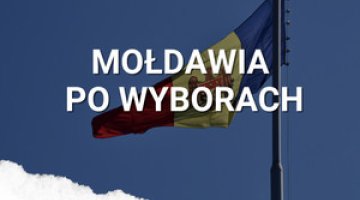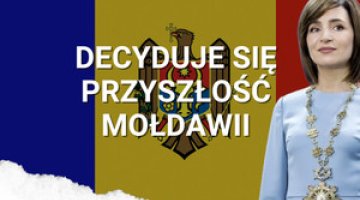Moldova: Turkey as an alternative to the EU?
The Turkish president, Recep Tayyip Erdoğan was on an official visit to Moldova on 17 and 18 October. During this visit he met, amongst others, with President Igor Dodon, Prime Minister Pavel Filip and the head of the governing Democratic Party, Vlad Plahotniuc. He also took part in the official opening ceremony of the building of the presidential palace which had been renovated using Turkish money. The documents signed during the visit included a strategic partnership agreement, an agreement enabling citizens of both countries to travel carrying just an identity card, and an agreement facilitating the operation of Moldovan transportation companies in Turkey. President Erdoğan also went to the autonomous Gagauzia region where he met with representatives of local government.
Commentary
- President Erdoğan’s visit is further proof of the enhancement of Moldovan-Turkish political and business co-operation. In September 2017, Erdoğan received the Moldovan oligarch Vlad Plahotniuc in Ankara. Even though Plahotniuc has no official function in the government, he is Moldova’s most powerful politician. It was announced last December that Turkey would pay for the renovation of the presidential administration building, the cost of which was around 8 million euros (the building was devastated during the riots in 2009), and this year Turkey’s Summa Group struck a deal with the government in Chisinau concerning the construction of a stadium worth 43 million euros. A road construction contract worth 60 million euros was also signed with a Turkish contractor. It was also announced that two Turkish banks (Ziraat Bank and Halkbank) would enter the Moldovan market. Furthermore, the fact that seven teachers working for the Moldovan-Turkish Orizont secondary school network were arrested on 6 September by the Moldovan security service and deported to Turkey should be viewed as another sign of intensifying co-operation between the two countries. There is no doubt that the decision was made on the Turkish government’s request. Ankara argues that these secondary schools are linked to the Fethullah Gülen movement which it accuses of terrorism.
- The intensification of co-operation between Chisinau and Ankara should also be viewed through the prism of the deteriorating relations between the nominally pro-European government of Moldova and the EU. The absence of progress in conducting the key reforms (above all the judiciary reform), notorious violations of the principles of law and order by the Moldovan government, and restrictions of democratic liberties (for example, the cancellation of the results of the election for mayor of Chisinau in June this year) led to Brussels freezing 100 million euros allocated as macro-financial assistance to Moldova in July this year. By deciding to enhance co-operation with Turkey, Vlad Plahotniuc wants to receive a guarantee that infrastructural projects will be financed (which is important in the context of the parliamentary election scheduled for February 2019) and that this will not be made conditional on reforms. On the other hand, he is giving a clear sign to Western partners that he is not dependent on them and that further criticism of his rule may lead to Moldova drifting away from the EU. In mid September, partly due to intensifying criticism from Brussels, Plahotniuc announced that his party, which until then had branded itself as pro-European, would become a ‘pro-Moldovan’ grouping.





